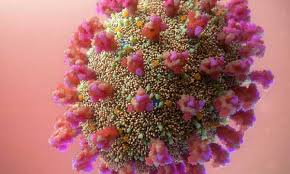Introduction
Did you know that your kidneys are responsible for filtering about 120-150 quarts of blood every day? That’s a lot of work for these small organs! But do we give our kidneys the care they deserve?
Today, we’re going to talk about the impact of enough water intake on kidney health. Water is essential for the proper functioning of our bodies, and our kidneys are no exception. So, let’s dive into the world of hydration and kidney health.
What are kidneys?

The kidneys are two bean-shaped organs located on either side of the spine, just below the ribcage. They play a crucial role in maintaining the body’s overall health by filtering waste products from the blood and regulating fluid levels.

Each kidney contains millions of tiny filters called nephrons, which remove waste and excess water from the blood. The filtered waste is then sent to the bladder as urine, while the remaining fluid and nutrients are returned to the bloodstream.
ROLE OF KIDNEYS
The kidneys are two bean-shaped organs located in the back of the abdominal cavity. They perform several critical functions, including the filtration of blood, regulation of electrolyte balance, acid-base balance, and elimination of waste products through urine. Adequate water intake is essential to support these functions and promote healthy kidney function.
WATER AND FILTRATION
The kidneys filter approximately 180 liters of blood per day, removing waste products, excess electrolytes, and fluid. This filtration process is essential for maintaining the body’s overall fluid balance and eliminating toxins. Sufficient water intake helps optimize this filtration process by ensuring an adequate volume of blood reaches the kidneys, allowing for efficient waste removal.
PREVENTING KIDNEY STONES
Dehydration can increase the risk of kidney stone formation. When the body lacks sufficient water, the urine becomes concentrated, leading to the crystallization of substances like calcium, oxalate, and uric acid. Over time, these crystals can combine to form kidney stones. By staying well-hydrated, individuals can dilute their urine, reducing the risk of kidney stone formation and promoting optimal kidney health.
MAINTAINING BLOOD PRESSURE:
Water intake plays a vital role in regulating blood pressure. The kidneys help control blood pressure by adjusting the volume and concentration of urine produced. When the body is adequately hydrated, blood volume is optimized, allowing the kidneys to function effectively in maintaining stable blood pressure levels. Insufficient water intake can lead to dehydration, which can affect blood pressure regulation and potentially strain the kidneys.
PREVENTING KIDNEY INFECTIONS:
Proper hydration is also crucial for preventing urinary tract infections (UTIs) that can potentially lead to kidney infections. Water helps flush bacteria and other harmful substances out of the urinary tract, reducing the risk of infection. By maintaining adequate water intake, individuals can support their immune system and promote the overall health of their kidneys.
KIDNEY FUNCTION TESTS:
Kidney function tests are a group of medical tests that evaluate how well the kidneys are functioning. These tests provide important information about the kidneys’ ability to filter waste products, maintain fluid and electrolyte balance, and produce urine. They are commonly used to diagnose and monitor kidney diseases, assess overall kidney health, and evaluate the effectiveness of treatments. Here are some commonly performed kidney function tests:
- Complete Blood Count (CBC): A CBC measures the levels of red blood cells, white blood cells, and platelets in the blood. Kidney disease can affect red blood cell production, leading to anemia. Additionally, certain kidney disorders may cause changes in white blood cell and platelet counts.
- Blood Urea Nitrogen (BUN) Test: The BUN test measures the level of urea nitrogen in the blood. Urea is a waste product formed in the liver from the breakdown of proteins. Elevated BUN levels can indicate reduced kidney function, as the kidneys are responsible for filtering and excreting urea.
- Serum Creatinine Test: Creatinine is a waste product produced by muscle metabolism. The serum creatinine test measures the level of creatinine in the blood. Like BUN, elevated creatinine levels suggest decreased kidney function, as the kidneys normally eliminate creatinine from the body.
- Glomerular Filtration Rate (GFR): GFR is considered the most accurate indicator of kidney function. It estimates the amount of blood filtered by the glomeruli (tiny blood vessels in the kidneys) per minute. GFR is calculated using a formula that takes into account serum creatinine levels, age, gender, and other factors.
- Urinalysis: A urinalysis involves examining a urine sample for various substances, including red and white blood cells, protein, glucose, and bacteria. Abnormal findings in the urine, such as the presence of blood or protein, can indicate kidney damage or disease.
- Urine Albumin-to-Creatinine Ratio (ACR): ACR measures the amount of albumin (a protein) in the urine relative to the creatinine level. It is used to detect and monitor kidney damage, particularly in individuals with diabetes or hypertension. Increased ACR levels suggest impaired kidney function.
- Serum Electrolytes: Electrolytes are minerals that help maintain fluid balance, regulate nerve and muscle function, and support other essential bodily processes. Blood tests measure the levels of electrolytes such as sodium, potassium, chloride, and bicarbonate. Abnormal electrolyte levels may indicate kidney dysfunction, as the kidneys play a vital role in electrolyte regulation.
- Kidney Imaging: Imaging tests such as ultrasound, CT scan, or MRI may be performed to visualize the kidneys and assess their structure, size, and any abnormalities such as tumors, cysts, or obstructions.
- Kidney Biopsy: In certain cases, a kidney biopsy may be recommended to obtain a tissue sample for microscopic examination. This test helps diagnose the cause of kidney disease and provides valuable information about the extent and nature of kidney damage.
It is important to note that these tests are often used in combination to evaluate kidney function comprehensively. The results, along with a patient’s medical history and symptoms.
How much water should you drink?
The average adult should aim to drink at least eight 8-ounce glasses of water per day, which equals about 2 liters or half a gallon. However, individual needs may vary based on factors such as age, weight, activity level, and climate.
Staying hydrated is crucial for maintaining healthy kidneys. When you don’t drink enough water, your kidneys have to work harder to filter waste products from the blood. This can lead to kidney damage over time. By drinking enough water, you can help your kidneys function properly and reduce your risk of kidney disease.
What happens when you don’t drink enough water?
When you don’t drink enough water, your kidneys have a harder time flushing out waste and toxins from your body. This can lead to a buildup of harmful substances in your kidneys, which can cause damage over time.
Dehydration can also lead to the formation of kidney stones, which are painful mineral deposits that form in the kidneys. These stones can block the flow of urine and cause further damage to the kidneys if left untreated.
Tips for staying hydrated
Carry a reusable water bottle with you wherever you go. This will not only remind you to drink more water but also help reduce plastic waste.
Set reminders on your phone or computer to drink water at regular intervals throughout the day. You can also use apps that track your water intake and send you reminders.
CONCLUSION:
Maintaining a healthy water intake is essential for promoting optimal kidney function and overall well-being. By ensuring adequate hydration, individuals can support the kidneys’ vital functions, including waste removal, blood pressure regulation, and prevention of kidney stone formation and infections. Make drinking water a habit and stay mindful of your body’s hydration needs to keep your kidneys healthy for years to come.






I love how you’ve broken down this topic into easy-to-understand sections. The step-by-step approach you’ve taken is very helpful.
This is such a valuable resource. I’ve learned so much from this post, and I appreciate the practical advice you’ve shared.
I’m so in love with this. You did a great job!!
Your articles are very helpful to me. May I request more information?
I’m so in love with this. You did a great job!!
Thank you for your help and this post. It’s been great.